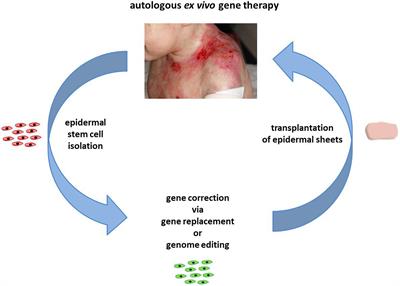EDITORIAL
Published on 18 Oct 2021
Editorial: Gene, Cell and Protein Replacement Therapy for Genetic Muscle, Bone and Skin Disorders
doi 10.3389/fgene.2021.771611
- 1,547 views
7,224
Total downloads
32k
Total views and downloads
Select the journal/section where you want your idea to be submitted:
EDITORIAL
Published on 18 Oct 2021
STUDY PROTOCOL
Published on 01 Sep 2021

ORIGINAL RESEARCH
Published on 11 Aug 2021

PERSPECTIVE
Published on 06 Aug 2021

REVIEW
Published on 02 Aug 2021

REVIEW
Published on 30 Apr 2021


Frontiers in Pediatrics